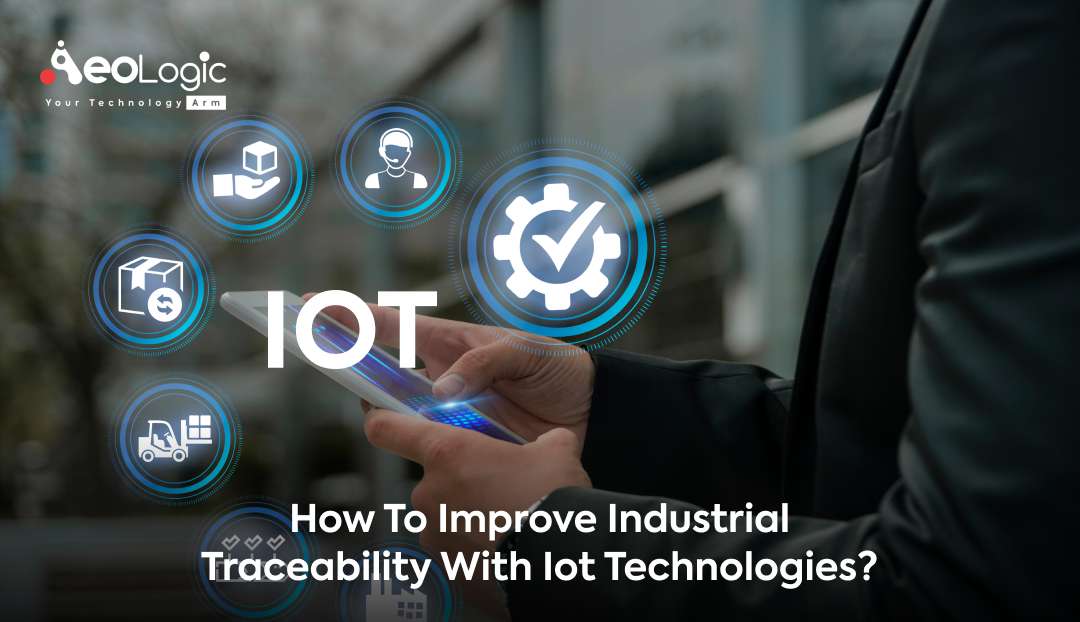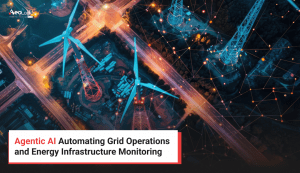In today’s hyper-connected world, knowing where things come from and where they’re going is paramount for industries. Enter the realm of “Industrial Traceability With IoT Technologies.” It’s a buzzworthy term, but what does it truly mean for industries? More importantly, how can it be improved? Let’s dive right in.
What is Industrial Traceability With IoT Technologies?
Industrial traceability refers to the ability of a business or industry to track goods and services throughout their lifecycle, from raw materials to end-users. Internet of Things (IoT) technology, on the other hand, involves connecting physical devices with the internet or with each other.
When we talk about Industrial Traceability With IoT Technologies, we’re discussing the potent union of these two concepts. By embedding sensors and connectivity into products, equipment, and other assets, industries can gain a real-time, in-depth view of their supply chains, manufacturing processes, and distribution networks, revolutionizing how industries operate. For instance, in the fashion industry, IoT can trace the origin of a piece of clothing right back to the cotton farm.
Also Read our trending blog: Traceability Solutions for Supply Chains with Examples
Why is Improving Industrial Traceability Important?
In an age where information is power, understanding the journey of products and processes becomes vital for businesses. Let’s explore the compelling reasons behind the importance of enhancing industrial traceability.
- Enhanced Transparency: Consumers and businesses alike are leaning towards transparency more than ever. Knowing the origin of products ensures authenticity and quality, building trust with end-users. For example, a jewelry company can prove the authenticity and ethical sourcing of their diamonds using traceability.
- Efficiency Boost: With the dynamic landscape of industries, having real-time insights can significantly streamline operations. For instance, in logistics, knowing the exact location and status of shipments can help optimize routes and delivery times.
- Reduced Costs: With heightened traceability, industries can swiftly identify and address inefficiencies, ultimately reducing operational costs. In manufacturing, identifying bottlenecks early can prevent costly production halts.
- Compliance: Many industries face strict regulations that necessitate impeccable traceability to ensure safety and quality. For example, pharmaceutical companies can ensure the correct storage conditions of drugs throughout their supply chain.
- Risk Management: Improved traceability aids in identifying and responding to potential disruptions, ensuring uninterrupted service and maintaining reputation.
Also Read: The Importance of Traceability in Laboratory Tests
How can IoT Technologies Enhance Industrial Traceability?
In an age where precise tracking and real-time data reign supreme, IoT stands as a beacon for industrial advancement. Let’s explore how IoT reshapes the landscape of industrial traceability.
Real-time Monitoring
IoT sensors provide invaluable real-time data on product location, condition, and even operational status. This immediate feedback means industries can make quick decisions to ensure optimal operations. Imagine being able to track a perishable item in transit and receiving an alert if its temperature rises above a certain level. This immediate knowledge enables companies to take swift actions, ensuring product quality and reducing waste. For example, a seafood distributor can immediately redirect a shipment if they detect that the temperature inside a transport container is not optimal.
Predictive Maintenance
IoT technologies can predict when machinery is nearing a breakdown or requires maintenance. This foresight not only prolongs the life of the equipment but ensures a continuous and efficient operation, preventing costly downtimes. For instance, in a factory, sensors on a critical machine might detect abnormal vibrations, signaling the need for maintenance before a major breakdown occurs.
Enhanced Data Collection and Analysis
IoT devices can accumulate vast amounts of data over time. Advanced analytics can then morph this data into actionable insights, driving informed decision-making. As these patterns emerge, industries are better equipped to forecast demands, manage inventories, and fine-tune processes. For example, a retailer can adjust their stock levels based on real-time sales data and historical buying trends.
Automated Workflow
Incorporating IoT devices into workflows can automate repetitive tasks, thereby significantly reducing the chances of human error. This not only ensures more accurate traceability but also liberates workers for tasks that require human insight and creativity. For instance, a warehouse can use IoT to automate the sorting and storage of products, ensuring that items are always traceable and in their correct locations.
Improved Security
IoT technologies can beef up security throughout the supply chain. By monitoring and tracking assets in real time, unauthorized access or deviations can be swiftly detected, and corrective actions can be initiated. For instance, in high-value cargo shipments, any unscheduled stop or route change can trigger immediate alerts to security teams.
Enhanced Consumer Engagement
Embedding IoT in products can continue the engagement even after purchase. Industries can receive feedback, usage stats, and more, directly from the product in use. For instance, a smart appliance can provide manufacturers insights on usage patterns, which can guide future product enhancements.
Environmental Impact Monitoring
IoT can also help industries monitor their environmental footprint. Sensors can detect emissions, waste levels, and resource consumption, ensuring sustainable operations. For instance, a factory can monitor its wastewater in real-time, ensuring that it meets environmental standards before disposal.
Do you know? Role of Traceability in Sustainable Supply Chain Management
Implementing IoT for Improved Traceability: A Step-by-Step Guide
Dipping your toes into the vast ocean of IoT for enhanced traceability can seem daunting. However, with a structured approach and clear roadmap, the journey can be both enlightening and transformative. Let’s guide you through.
1. Define Clear Objectives
Determine what you aim to achieve with IoT. Is it better supply chain visibility? Reduced waste? Compliance with a specific set of regulations? For example, a beverage company might aim to ensure that their products are stored at the correct temperatures throughout the distribution process.
2. Invest in Quality Hardware
The success of your IoT initiative largely rests on the reliability of the devices you use. Ensure that the sensors and devices you select are suitable for your industry’s unique needs. For instance, sensors used in underwater equipment would need to be water-resistant or waterproof.
3. Ensure Seamless Integration
Your IoT devices should harmoniously co-exist with your current systems. This might involve investing in software that marries all your systems into a cohesive, interconnected unit. As an example, a factory might need software that can integrate their IoT sensors with their existing inventory management system.
4. Train Your Team
Empower your team by equipping them with knowledge. Ensure they grasp the new technology, its potential, and the role it plays in enhancing traceability. For instance, training sessions can demonstrate to a logistics team how real-time tracking can improve delivery times and customer satisfaction.
5. Regularly Review and Optimize
Evolution is key in technology endeavors. Regularly appraise your IoT traceability strategies, identifying any hiccups or golden opportunities waiting to be tapped. For instance, periodic reviews might reveal that certain sensors are not providing valuable data and can be reallocated to more critical areas.
Quick Glance: Benefits of Industrial Traceability With IoT Technologies
| Benefit | Explanation |
|---|---|
| Enhanced Transparency | Real-time data ensures authentic and quality products. |
| Efficiency Boost | Streamlined operations with real-time monitoring. |
| Reduced Costs | Swift identification and rectification of inefficiencies. |
| Compliance | Meet industry regulations with detailed traceability. |
Also Read: Benefits of Laser Marking for Manufacturing Traceability Solutions
Why Pick Aeologic Technologies for Industrial Traceability With IoT Technologies?
In the quest for the best in the IoT realm, our team at Aeologic Technologies consistently stands out. Our dedication to tracking and IoT solutions is unmatched. With our proven track record, user-friendly tools, and round-the-clock support, we offer not just technology, but a true partnership. Our unwavering commitment to innovation ensures that our partners remain ahead of the curve, and our expertise guarantees hassle-free integration. Dive in to discover why Aeologic is the first choice for so many industry leaders.
Also Read: The Future of Traceability in the Grocery Industry
Wrapping Up
The harmonious melding of industrial traceability and IoT technologies paves the way for a future of enhanced transparency, efficiency, and cost reductions. As the clamor for impeccable traceability amplifies, early adoption of these tech marvels sets businesses on a trajectory for monumental success.
In the throes of the 4th industrial revolution, the question isn’t if you should embrace Industrial Traceability With IoT Technologies, but rather how soon can you? Navigate this new era, refine operations, and soar above the competition.
Frequently Asked Questions
What industries can benefit from Aeologic’s IoT traceability solutions?
Our solutions at Aeologic Technologies are versatile and tailored to fit a wide range of industries, including manufacturing, logistics, healthcare, agriculture, and more. Whether it’s real-time monitoring or predictive maintenance, we have tools to meet diverse industry needs.
How secure are Aeologic’s IoT solutions?
At Aeologic, security is paramount. We prioritize safeguarding data and utilize advanced encryption and security protocols to ensure your information remains confidential and protected from any potential threats.









